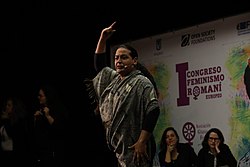The Romani in Spain, generally known by the endonym Calé, or the exonym gitanos, belong to the Iberian Romani subgroup known as Calé, with smaller populations in Portugal and in Southern France. Their sense of identity and cohesion stems from their shared value system, expressed among gitanos as las leyes gitanas.
Feminism in Mexico is the philosophy and activity aimed at creating, defining, and protecting political, economic, cultural, and social equality in women's rights and opportunities for Mexican women. Rooted in liberal thought, the term feminism came into use in late nineteenth-century Mexico and in common parlance among elites in the early twentieth century. The history of feminism in Mexico can be divided chronologically into a number of periods with issues. For the conquest and colonial eras, some figures have been re-evaluated in the modern era and can be considered part of the history of feminism in Mexico. At the time of independence in the early nineteenth century, there were demands that women be defined as citizens. The late nineteenth century saw the explicit development of feminism as an ideology. Liberalism advocated secular education for both girls and boys as part of a modernizing project, and women entered the workforce as teachers. Those women were at the forefront of feminism, forming groups that critiqued existing treatment of women in the realms of legal status, access to education, and economic and political power. More scholarly attention is focused on the Revolutionary period (1915–1925), although women's citizenship and legal equality were not explicitly issues for which the revolution was fought. The Second Wave and the post-1990 period have also received considerable scholarly attention. Feminism has advocated for the equality of men and women, but middle-class women took the lead in the formation of feminist groups, the founding of journals to disseminate feminist thought, and other forms of activism. Working-class women in the modern era could advocate within their unions or political parties. The participants in the Mexico 68 clashes who went on to form that generation's feminist movement were predominantly students and educators. The advisers who established themselves within the unions after the 1985 earthquakes were educated women who understood the legal and political aspects of organized labor. What they realized was that to form a sustained movement and attract working-class women to what was a largely middle-class movement, they needed to utilize workers' expertise and knowledge of their jobs to meld a practical, working system. In the 1990s, women's rights in indigenous communities became an issue, particularly in the Zapatista uprising in Chiapas. Reproductive rights remain an ongoing issue, particularly since 1991, when the Catholic Church in Mexico was no longer constitutionally restricted from being involved in politics.

Amelia Valcárcel is a Spanish philosopher and feminist. She is considered within the “philosophic feminism” as part of the “equality feminism” approach. In 2015 she is a professor in Moral and Political Philosophy at the National University of Distance Education and since 2006 is member of the Spanish Council of State.
Feminism in Argentina is a set of movements aimed at defining, establishing, and defending equal political, economic, and social rights and equal opportunities for women in Argentina. Although some women have been considered precursors—among them Juana Manso and Juana Manuela Gorriti—feminism was introduced to the country as a result of the great European immigration wave that took place in the late 19th and early 20th century. The first feminists did not form a unified movement, but included anarchist and socialist activists, who incorporated women's issues into their revolutionary program, and prestigious freethinker women, who initially fought for access to higher education and, later, legal equality with men. The early 20th century was also full of women fighting for their freedom and rights in the workplace. Despite the efforts of the first-wave feminists, Argentine women did not acquire the right to vote until 1947, during Juan Perón's first government. His highly popular wife, Eva, championed women's suffrage and founded and ran the nation's first large-scale female political party, the Female Peronist Party. Although she refused to identify herself as a feminist, Eva Perón is valued for having redefined the role of women in politics.
Fourth-wave feminism is a feminist movement that began around 2012 and is characterized by a focus on the empowerment of women, the use of internet tools, and intersectionality. The fourth wave seeks greater gender equality by focusing on gendered norms and the marginalization of women in society.

Celia Amorós Puente is a Spanish philosopher, essayist and supporter of feminist theory. She is a key figure in the so-called equality feminism and focused an important part of her research in the building of relations between Enlightenment and feminism. Her book Hacia una crítica de la razón patriarcal constitutes a new outlook on the gender perspective of philosophy, revealing the biases of androcentrism and claims a critical review on behalf of women.
Julieta Paredes Carvajal is an Aymara Bolivian poet, singer-songwriter, writer, graffiti artist, anarchist and decolonial feminist activist. In 2003 she began Mujeres creando comunidad out of the activism of community feminism.
Purplewashing is a compound word modeled on the term whitewash. The prefix "purple" is associated with feminism while the verb "wash" refers to the co-opting strategies that use minority rights to maintain or enhance structural forms of discrimination.
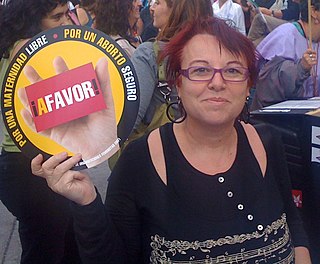
Montserrat Boix Piqué is a Spanish journalist, considered among the most influential women in her country. In early 2000, she created and developed the concepts of social cyberfeminism, and a year later those of feminist hacktivism. Another of her main areas of work is gender violence and communication. She has also stood out as a defender of the right to communication and citizenship rights for women. Since 1986, she has been a journalist for the Information Services of Televisión Española (TVE), in the international section.

Ana de Miguel Álvarez is a Spanish philosopher and feminist. Since 2005 she has been a titular professor of Moral and Political Philosophy at King Juan Carlos University of Madrid. She directs the course History of Feminist Theory at the Complutense University of Madrid's Instituto de Investigaciones Feministas.
Ana Victoria Jiménez is a Mexican feminist, photographer, editor, and activist, that actively participated in the second wave of Mexico's feminist movement. She is best known for her archive, Archivo Ana Victoria Jiménez, which contains photographs, posters, and flyers that demonstrated or related to women activism in Mexico.

Alicia Helda Puleo García is an Argentine-born feminist philosopher based in Spain. She is known for the development of ecofeminist thinking. Among her main publications is Ecofeminismo para otro mundo posible.
Feminism in Francoist Spain and the democratic transition period took place in a specific socio-historical context. Spanish feminism went through several waves in the Francoist period. Broadly speaking, they are first-wave feminism taking place from the mid-nineteenth century to 1965, second-wave feminism taking place from 1965 to 1975, and third-wave feminism taking place from 1975 to 2012.

Fourth-wave feminism in Spain is about digital participation in virtual spaces, encouraging debates and using collective force to enact change. It is about fighting patriarchal systems, denouncing violence against women, and discrimination and inequality faced by women. It is also about creating real and effective equality between women and men. It has several major themes, with the first and most important in a Spanish context being violence against women. Other themes include the abolition of prostitution, the condemnation of pornography, the support of legal abortion, the amplifying of women's voices, ensuring mothers and fathers both have access to parental leave, opposition to surrogacy, and wage and economic parity.

Eli Bartra is a feminist philosopher and a pioneer in researching women and folk art in different places of the world, but particularly, in Mexico. She is the daughter of the writers Anna Murià and Agustí Bartra, two Catalan refugees in Mexico.
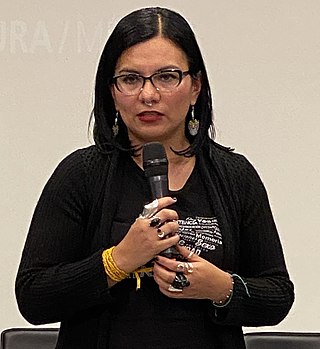
Raquel Ramírez Salgado is a Mexican researcher, communicator, feminist and women's rights activist.
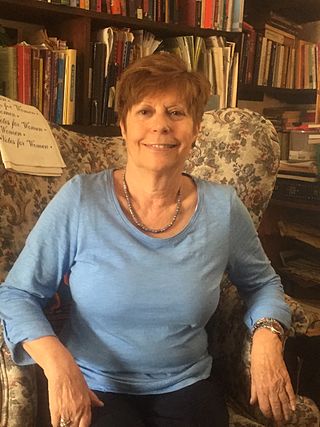
Ana Lau Jaiven is a Mexican feminist, academic and researcher at the UAM Azcapotzalco. She began studying Mexican feminist movements in 1980, and has gone on to study women in the Mexican Revolution, and women's movements and groups throughout 20th-century Mexican history. Francesca Gargallo places her in a group of Latin American feminist historians alongside Julia Tuñón, Ana Arroba, Edda Gabiola and Araceli Barbosa.

Florence Thomas is a French-Colombian social psychologist and feminist academic. She was a co-founder of the Programa de Estudios de Género, Mujer y Desarrollo at the National University of Colombia. She is also a journalist for the newspaper El Tiempo. Thomas was honored with the Premio Nacional de Periodismo Simón Bolívar in 2005. In 2017, Thomas was decorated as a Knight in France's Legion of Honour.
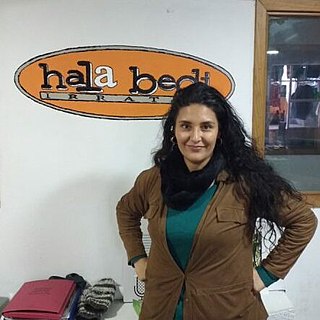
Silvia Agüero is a Spanish Roma feminist writer and human rights activist who recovers the memory of the oppression of gitano people.

Pastora Filigrana is a Spanish Labour lawyer, trade unionist, feminist, columnist, and human rights activist of Roma origin.

